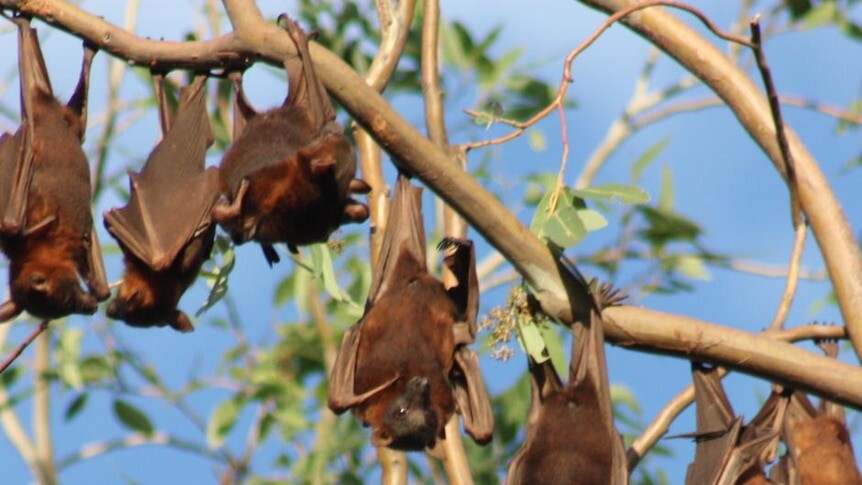Zombo, (UG): A section of community members residing in Mission and Japanyondo west villages in Nyibola Ward, Paidha Town Council are engineering mixed reactions and choruses about the wild bats niched on some pockets of trees in close proximity to their residence and village water stream (Solia).
The residents who spoke to DailyExpress on Wednesday echoed their fear of the spread of diseases resulting from unguided co-existence with the bats as the mammals are long-term hosts for zoonotic diseases like Ebola, Rabies and Marburg.
Worst still, the residents say the irritating odours from the droppings of bats occasionally washed downstream contaminate the village water stream exposing them to waterborne diseases with children at the helm of the risk.
The bats whose species were not identified by this publication are believed to have biological significance as they feed on insect pests such as moths, and mosquitoes, among others are said to aid seed dispersal and guano mining providing organic manure culminating in high yields of crops in the solia valley and other areas of habitat.
The community members of Mission and Jupanyondo West villages have co-existed with the bats for more than 7 years now after a sizeable number of the bats translocated after the habitats at Mvule were lumbered.
This publication engaged the community members and the leaders of Paidha Town Council on future plans to allow the ecological coexistence of man and the bats given the biological significance of the mammals, and below is what they had to say.
Mr. Saviour Oyirwoth, a resident of Jupanyondo West Village in verbatim said that; “the bats excrete so much into the solia stream in the evening hours as they leave the habitats in search of feeds, contaminating the water that is majorly used for domestic purposes with the droppings because the mammals are hosts for viruses.”
The Assistant Senior Community Development Officer of Paidha Town Council, Mr Christopher Nyodober when contacted told Daily Express that the bats have been at Mvule, around the premises of Bashir since 1995 and even now at other places like Mission Village for several years.
“As the council, we have run short of ideas on how to manage the bats and our doors are widely open for Uganda Wildlife Authority to come to our rescue and we are ready to secure money for translocation or other management strategies,” Nyodober narrated to this publication.
The community members residing next to the habitats of the mammals are acclimatizing to high-frequency sounds produced by the bats throughout the day, the greatest source of sound pollution presenting eventual hearing defects for especially young children and distorted sober mood for the majority of residents.
Mr Godfrey Oparpiu, a resident of Ovuruyindi village iterated their plight saying,”…there is no serenity in this place all over the day the mammals produce high pitch sound that deters children and the adults from siesta and other activities that require tranquil environment.”
The bats, spotted around Mvule, Paidha Town Council offices, the premises of Bashir and Mission Village are estimated to be more than 5 million in numbers every evening. They fly in distorted clusters towards the eastern parts of the Democratic Republic of Congo, especially Mokambo more than 75kms in search of feeds like palm oil seeds, amidst the predation threat of being hunted by the Bacongo and Baluba tribes of Congo hence dwindling the population of the mammals.
Mr Reginald Ocakachon, a health assistant in Paidha Town has now advised the community to practice basic primary healthcare such as boiling water, covering and washing food or any edible commodities, and above all learn to co-exist with the mammals as a long-term solution is sought.
“Residents should learn to co-exist with the bats but should learn to maintain hygiene in their homes as preventive measures to combat the spread of diseases,” Ocakacon advised.
Leaders of Paidha Town Council have committed themselves to cooperate with Uganda Wildlife Authority as far as the management of the bats is concerned and at most developing the translocation plans for the mammals to a legally gazetted location.
If you would like your article/opinion to be published on Uganda’s most authoritative news platform, send your submission on: [email protected]. You can also follow DailyExpress on WhatsApp and on Twitter (X) for realtime updates.



